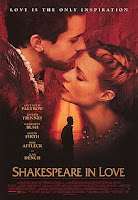But now I’ve got that annoying solecism off my chest, I have to
tell you that Skyfall is a masterpiece.
If you have a shred of interest in Bond movies, you should drop
everything and go and see it right now.
Skyfall is written by the admirable team of Neal Purvis and Robert Wade who
have been doing excellent work on the franchise for many years. (They also attended my alma mater, the University of Kent at Canterbury -- hi, guys.)
As has become traditional, the Purvis & Wade script was then
rewritten by another hired gun, presumably to provide some additional fresh
ideas.
On the previous Daniel Craig Bonds, this third writer was Paul
Haggis. This time around it’s John Logan, who wrote Gladiator.
And James Bond was, of course, created by the great Ian Fleming.
 I don’t know how to apportion credit for all the first-rate
material in the Skyfall, but suffice to say the writers got it right.
I don’t know how to apportion credit for all the first-rate
material in the Skyfall, but suffice to say the writers got it right.
Not just the writers. The cinematography is stunning. And Sam
Mendes does a great job of directing.
The Thomas Newman music is the best Bond score in years; he’s new
to the franchise and is on board because he’s composed all of Mendes’ films
(perhaps most memorably American Beauty).
And the cast is splendid. Albert Finney is splendid – it certainly
wasn’t his fault about the rifle dialogue. I suspect it wasn’t the writers’
fault, either. What probably happened was that the script specified a rifle,
and then somebody decided a double barrelled shotgun was sexier and changed the
prop without adjusting the script.
The problem is, both the characters in the shotgun scene are
weapons experts. And in a Bond story, guns matter.
Other problems with the film? Well, in the initial motorcycle
chase the bad guy looks rather too much like Bond (short cropped fair hair)
causing confusion about who’s who.
I’m also not convinced about the effects of cyanide as discussed
in the film (research continues on this topic).
And most of all, I’m not happy with the way Bond stalks a sniper
and politely waits until the bad guy has murdered his prey before taking action
against him.
It has a brilliant script.
It has a strikingly hot Bond girl (Naomie Harris, take a bow).
It has a memorable villain, something notably lacking from Quantum
of Solace, this time in the shape of Javier Bardem (Javier, I forgive you for
Before Night Falls).
 And, praise the gods of espionage thrillers, it has a magnificent
climactic action sequence. (Very unusually for a Bond film, moving into Straw Dogs territory.)
And, praise the gods of espionage thrillers, it has a magnificent
climactic action sequence. (Very unusually for a Bond film, moving into Straw Dogs territory.)
This last feature was notably lacking from Quantum of Solace
(exploding modular hotel, yawn) and most recent Bonds — and indeed most recent
American action movies.
 The trend in big screen thrillers has been to open with a slam
bang, jaw dropping set piece and then gradually decline to a weak ending (for a
recent example, check out the execrable Expendables 2).
The trend in big screen thrillers has been to open with a slam
bang, jaw dropping set piece and then gradually decline to a weak ending (for a
recent example, check out the execrable Expendables 2).
The terrific action conclusion was beginning to look like a lost
art.
Not any more. Skyfall delivers beyond all expectation.
I can’t quite believe I’m saying this, but it’s not just the best
Bond movie of the Daniel Craig era…
It’s the best Bond
movie of all time.



















